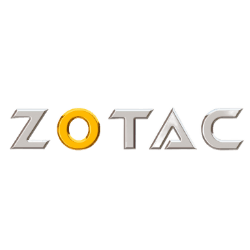
Comparison of ASUS Phoenix GeForce GTX 1650 e ZOTAC GeForce GTX 1050 OC Now is the perfect time to figure out which graphics card delivers the highest performance, what sets them apart, and the reasons behind those differences.
In front of you is a detailed comparison between the ASUS Phoenix GeForce GTX 1650 and the ZOTAC GeForce GTX 1050 OC to assist you in selecting the best card for your needs, we will examine their specifications, benchmark scores, and overall performance, guiding you toward an informed decision.
Comparing the ASUS Phoenix GeForce GTX 1650 to the ZOTAC GeForce GTX 1050 OC analyzing performance in various popular benchmarks highlights the key differences between these models. By understanding the distinctions between these two cards, you’ll be able to choose the best option for your needs, whether you’re a gamer, content creator, or someone seeking pure processing power..
ASUS Phoenix GeForce GTX 1650: boasts a maximum frequency of 1.485 GHz GHz + 6%. It is equipped with 4 GBGB of RAM. The memory type is GDDR5. It was released in Q2/2019.
ZOTAC GeForce GTX 1050 OC: It has a maximum clock speed of 1.455 GHz+ 7 % GHz. It comes with 2 GBGB of memory. The memory type is GDDR5. Released in Q1 Q4/2016.
 Motivi da considerare
Motivi da considerare Posizione nella classifica generale
(sulla base di diversi parametri di riferimento)
Velocità di clock più alta
Intorno a 2% migliore velocità di clock
Più memoria
50% più memoria
Posizioni comuni ASUS Phoenix GeForce GTX 1650 GPU in benchmark popolari, per un confronto con altri modelli.
 Motivi da considerare
Motivi da considerare Posizione nella classifica generale
(sulla base di diversi parametri di riferimento)
Posizioni comuni ZOTAC GeForce GTX 1050 OC GPU in benchmark popolari, per un confronto con altri modelli.
 ASUS Phoenix GeForce GTX 1650
ASUS Phoenix GeForce GTX 1650

This section provides a detailed comparison of the fundamental technical specifications of the graphics cards ASUS Phoenix GeForce GTX 1650 e ZOTAC GeForce GTX 1050 OC. It provides essential details like the GPU architecture, the number of processing units, and other key features that significantly influence the overall performance of the cards across different applications, including gaming and professional tasks..
This section provides a comparison of the memory configurations of ASUS Phoenix GeForce GTX 1650 e ZOTAC GeForce GTX 1050 OC. It includes details such as the memory size, type (e.g., GDDR6, HBM2), and bandwidth, which are key factors that determine how efficiently the card handles large textures, data sets, and high-resolution tasks.Larger memory sizes are typically beneficial for demanding applications like 4K gaming and video editing.
This section focuses on comparing the clock speeds of ASUS Phoenix GeForce GTX 1650 e ZOTAC GeForce GTX 1050 OC. It covers both the base and boost clock speeds, which have a direct impact on GPU performance during demanding tasks. Higher clock speeds generally result in smoother frame rates in games and faster processing in compute-intensive applications..
This section examines the thermal design of ASUS Phoenix GeForce GTX 1650 e ZOTAC GeForce GTX 1050 OC. It provides information on power consumption (in watts) and thermal output during normal use and overclocking. Effective thermal management is crucial for ensuring stable performance during extended gaming sessions or other intensive tasks..
This section compares the cooling systems of ASUS Phoenix GeForce GTX 1650 e ZOTAC GeForce GTX 1050 OC. It includes details about the types of coolers (e.g., blower or open-air) and the number and size of fans, which play a crucial role in maintaining optimal temperatures during operation.Effective cooling is essential for preventing thermal throttling and extending the longevity of the GPU.
This section compares the connectivity options available on ASUS Phoenix GeForce GTX 1650 e ZOTAC GeForce GTX 1050 OC. This includes details on the number and types of ports, such as HDMI, DisplayPort, and others, which are crucial for connecting monitors and external devices..This information assists in identifying which card provides more flexible or up-to-date connectivity features..
This section compares the technical specifications of ASUS Phoenix GeForce GTX 1650 e ZOTAC GeForce GTX 1050 OC. It highlights key features such as API support for DirectX, OpenGL, and Vulkan, which are crucial for running modern games and applications efficiently.These specifications ensure compatibility and optimal performance across a wide range of software environments.
This section compares the support for video codecs on ASUS Phoenix GeForce GTX 1650 e ZOTAC GeForce GTX 1050 OC. It highlights the built-in capabilities for compressing and decompressing video formats such as H.264, H.265 (HEVC), and VP9, which are important for tasks like video editing and streaming.
This section compares the physical dimensions of ASUS Phoenix GeForce GTX 1650 e ZOTAC GeForce GTX 1050 OC. It covers the size, weight, and slot requirements, which are key factors in ensuring compatibility with your PC case, particularly for smaller or more compact setups..
This section provides additional information about ASUS Phoenix GeForce GTX 1650 e ZOTAC GeForce GTX 1050 OC. It covers aspects such as release dates, interface compatibility, and other unique features that might not be covered in other sections.This helps users make a more informed decision about the suitability of each card for their specific use case.
By reviewing the results from several well-known benchmarks, you can more accurately assess the performance differences between ASUS Phoenix GeForce GTX 1650 e ZOTAC GeForce GTX 1050 OC.
Compare the synthetic benchmark results and select the best graphics card for your needs!